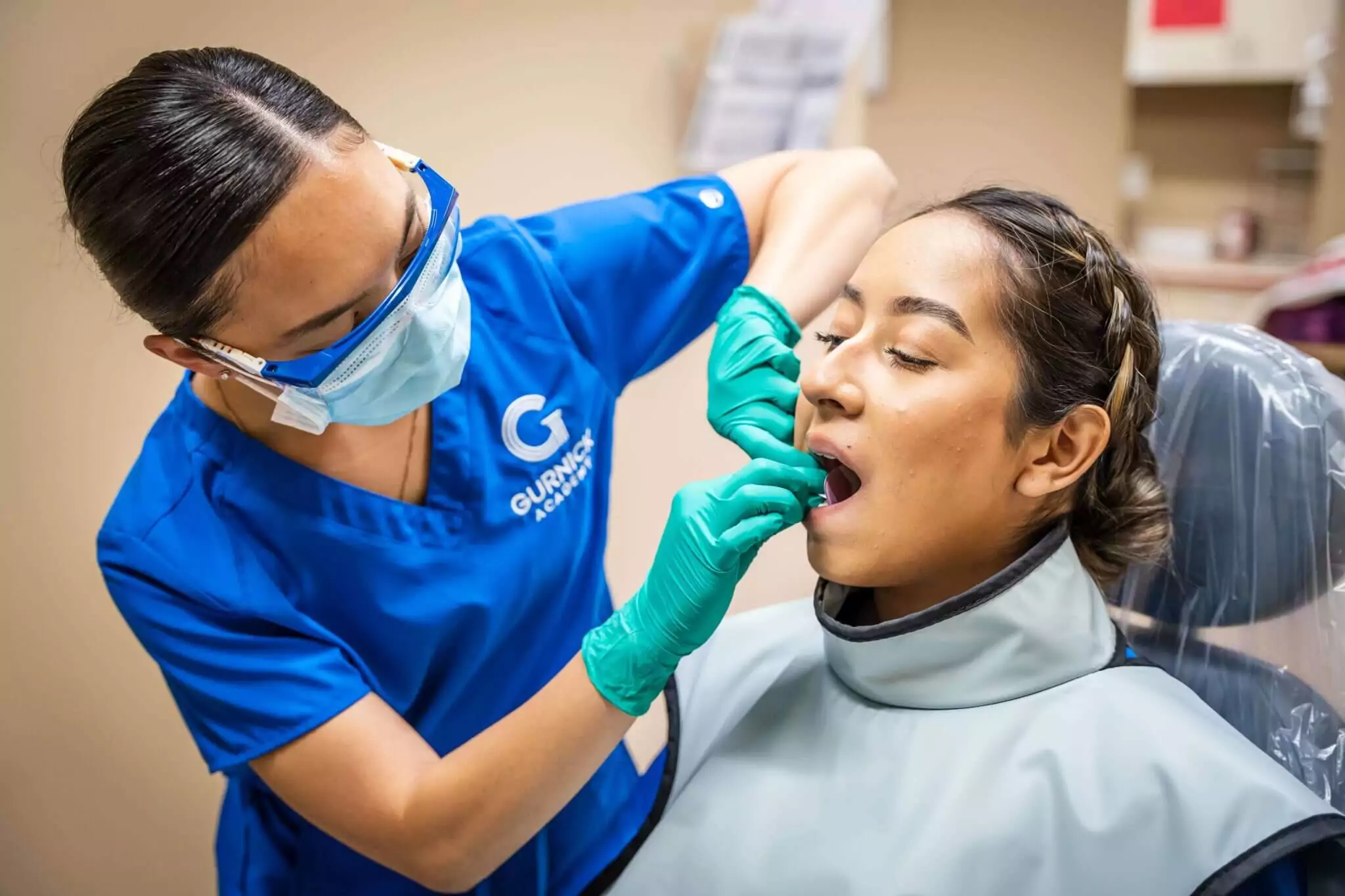Table of contents
Get Started with Kwikly
Get the latest updates, insights, and exclusive content delivered straight to your inbox.

Understanding the Role of a Dental Office Manager
Every dental practice that works well has a dental manager keeping things together. These people handle all kinds of stuff, mixing office work with clinical duties to make sure everything runs like it should. The main job of a dental office manager is to handle whatever the practice needs, often doing the work of an HR person, insurance coordinator, and marketing manager all at once. There are various job titles for this role, such as office manager, practice administrator, or business manager, depending on the practice. How well they manage things directly affects whether patients are happy and whether the office runs efficiently.
Good dental office managers know how to balance office work and clinical duties. They handle staff schedules, deal with patient complaints, and make sure both sides of the practice work together. Many dental office managers start out as dental hygienists or dental assistants, which gives them the clinical knowledge that makes them better at the administrative stuff. In fact, many dental office managers work their way up from entry-level roles, gaining experience in patient care, billing, and office operations.
Leading and mentoring staff is a vital part of the dental office manager’s role. They are responsible for creating a positive work environment, keeping the team motivated by setting the right tone, identifying training needs, and resolving conflicts when they arise. Strong leadership ensures that the dental practice functions as a cohesive team. Since staff are the most valuable asset of any practice, effective management is essential for recruiting, training, and retaining skilled employees.
The Importance of Dental Office Managers
Dental office managers are the ones who make sure each patient gets the best care possible. They’re what holds the office together, making sure every part of the practice works the way it should. When patients are happy, it helps the practice’s reputation and keeps patients coming back. Dealing with patient concerns quickly and effectively builds trust and makes the patient experience better.
Dental office managers find real satisfaction in building relationships with patients that last and helping with their overall health. They interact with patients daily, which requires strong interpersonal skills to handle a variety of patient needs and concerns. Also, staying up to date with changes in health and safety laws and making them into office policies is a key part of the job that keeps the practice following the rules and staying safe.
Balancing Administrative and Clinical Duties
Dental office managers balance office tasks and clinical responsibilities to keep a practice working well. Handling staff schedules and dealing with patient complaints are essential for keeping things running effectively. Many dental office managers start their careers as dental hygienists or dental assistants, giving them the clinical insights they need to know what the practice needs. This knowledge from both sides lets them optimize scheduling and make sure the right equipment is always there when you need it.
Good communication between dental office managers and dental professionals is crucial for getting clinical and administrative operations to work together. When dental office managers know both the clinical and administrative sides, it helps the whole team communicate better, making sure both sides of the practice work together.
Leading and Mentoring Staff
A dental office manager’s leadership plays a central role in creating a successful practice. They set the tone for the workplace, keep the team motivated, provide opportunities for staff to grow, identify training needs, and ensure employees have the resources for professional development. They also handle conflicts and maintain a peaceful work environment, all of which contribute to a team that works well together and keeps the practice running smoothly.
An effective dental office manager addresses interpersonal challenges in a fair and supportive way, making sure every staff member feels valued. This kind of leadership not only strengthens the workplace culture but also has a direct impact on the quality of patient care and overall patient satisfaction.

Core Responsibilities of a Dental Office Manager
The main responsibilities of a dental office manager span several areas, including management, financial oversight, human resources, and marketing. These professionals take on key tasks such as managing patient records, scheduling appointments, handling billing, overseeing staff and patient relations, and resolving customer service issues. To manage a dental office effectively, strong organizational and interpersonal skills are essential, ensuring smooth operations and positive patient experiences.
The primary categories of responsibility for a dental office manager include management and administration, financial management, human resources, and marketing. Each of these areas requires specific tasks and skills, which will be explored in greater detail in the sections that follow.
Scheduling Patient Appointments
Good scheduling is essential in a dental office to prevent conflicts and maximize productivity. The dental office manager plays a critical role in managing the dentist’s time effectively through careful scheduling. Using dental software with features such as automated appointment reminders helps reduce missed appointments, while maintaining a steady flow of patients ensures consistent productivity.
Online scheduling tools also improve the patient experience by allowing them to book appointments outside of office hours, offering greater convenience. Patient communication platforms further support this process with reminders and follow-ups, which reduce double bookings and create smoother patient flow. These systems not only make the practice more efficient but also enhance patient satisfaction by keeping appointments timely and well organized.
Managing Front Desk Operations
Managing front desk operations is a critical responsibility of a dental office manager. This includes making sure things run smoothly, training staff, and managing patient records. Greeting patients and keeping their records are essential tasks that create a welcoming environment and make sure patient information is recorded accurately and easy to access. The front desk serves as the first point of contact for patients, setting the tone for their experience. Dental receptionists are key members of the front desk team, responsible for administrative support and patient communication. The dental office manager duties include these vital office procedures.
Training front desk staff to provide great service and handle challenges effectively is crucial for keeping high standards of patient care. A well-managed front desk operation contributes significantly to the overall efficiency and professionalism of the dental office.
Overseeing Financial Transactions and Billing
Handling financial transactions and billing is one of the most important responsibilities of a dental office manager. This includes ensuring that treatments are billed accurately, processing insurance claims, managing patient payment plans, and resolving any billing issues that arise. Accurate billing practices are essential for maintaining financial integrity, which not only supports the financial health of the practice but also builds trust with patients.
Ensuring that financial transactions are both accurate and efficient keeps the practice stable and profitable. Dental office managers are also responsible for preparing financial reports that provide insight into the practice’s performance. These reports are vital for strategic planning and informed decision-making, helping the practice grow while maintaining strong financial foundations.
Addressing Patient Concerns and Feedback
Good dental office managers are vital in building patient trust and improving the overall care experience. Their responsibilities include handling patient feedback, addressing concerns, implementing suggestions, and mediating disputes. By managing these tasks effectively, they ensure patients remain satisfied and loyal to the practice.
Financial accuracy is also an important part of maintaining trust. Clear and accurate billing reduces misunderstandings and enhances the patient experience. Additionally, resolving conflicts and addressing issues promptly not only improves service quality but also strengthens the level of care patients receive.
Coordinating with Dental Professionals
Communication between dental office managers and clinical staff is crucial for getting administrative tasks to line up with clinical operations. Good communication makes sure that both administrative and clinical functions work together, making operations more efficient and patient care better.
Internal communication platforms, like real-time messaging tools, can improve staff coordination and help with immediate patient inquiries. These tools help streamline interactions within the practice, making sure all team members are on the same page and can respond quickly to any issues that come up, including phone calls.
Ensuring Compliance with Health Regulations
Following health regulations is essential for keeping a dental practice both legally compliant and safe for patients. This requires staying up to date with changing regulations such as HIPAA and OSHA, implementing the necessary policies to maintain compliance, and continually overseeing sterilization processes and patient data protection measures to ensure a secure practice environment.
Regularly updating policies in response to new regulations is a critical responsibility that helps the practice remain compliant and safe. Advanced analytics tools can also support this process by tracking key performance indicators and ensuring that compliance standards are consistently met.
Recruiting, Training, and Retaining Employees
Recruiting, training, and keeping staff is a key role of a dental office manager. Experience in customer service or office administration can significantly help a dental office manager’s effectiveness. Dental office managers handle staff schedules and make sure the team is well-trained and motivated. They are also responsible for ensuring all staff are trained to the practice's standards to maintain quality and consistency in patient care.
Mentorship by dental office managers is crucial for keeping team motivation and workplace harmony. Staff retention can be a significant challenge, particularly in areas where dental professionals are hard to find, making it essential for managers to create a supportive and engaging work environment where support needed is prioritized.
Inventory Management and Ordering Supplies
The dental office manager monitors inventory levels, places orders, and negotiates with vendors to make sure the practice operates without interruptions. Keeping adequate inventory levels is crucial to avoid disruptions in daily operations and maintain high standards of patient care.
Good inventory management also involves monitoring facility conditions and arranging repairs when needed. This makes sure you have a safe and efficient practice environment, contributing to the overall success of the dental office, which is a valuable asset.

Key Skills and Qualifications for Dental Office Managers
To do well in dental office management, you need a combination of skills, education, and relevant experience. Dental office managers need strong organizational and communication skills to handle the many different responsibilities of their role effectively. Leadership and organization skills are key qualities required for successful dental office management, as they’re responsible for both strategic and tactical management responsibilities. Understanding dental office manager requirements is also crucial for people who want to work in this field. A high school diploma or equivalent is typically required before pursuing further training or certification.
A background in dental hygiene or assisting can be particularly helpful, giving managers the clinical insights they need to understand the practice’s operations. Also, continuing education and taking specialized courses can improve a dental office manager’s qualifications and make practice operations better. Hiring an experienced dental office manager is essential for maintaining clinic growth and operational efficiency.
Using advanced practice management software is also crucial for efficiently handling patient records, scheduling, and billing.
Educational Background
An associate's degree is a common educational qualification for dental office managers, providing foundational knowledge in business, healthcare administration, or a related field. A bachelor's degree in business administration or healthcare management is often preferred or beneficial for those seeking advancement, as it can significantly improve job prospects and provide a solid foundation in management principles and healthcare systems.
Higher education gives dental office managers the knowledge and skills they need to navigate the complexities of dental practice management, including microsoft office knowledge, making them more effective in their roles.
Necessary Skills and Traits
A dental office manager should have key traits like being collaborative, personable, and having outstanding people skills. Good communication is crucial, as managers need to interact with staff, patients, and vendors, often requiring them to stay calm and clear in their interactions.
Also, dental office managers need a solid understanding of dental procedures, insurance billing, and HIPAA regulations to manage the practice effectively. Administrative knowledge, including billing and insurance processes, is essential, as managers are responsible for multiple operational and administrative tasks that require good organization.
Relevant Experience
Dental assistants often have a unique position that combines clinical and administrative duties, making them well-suited for transitioning to management. Their comprehensive understanding of office operations gives a solid foundation for taking on leadership roles and guiding the team towards success within the American Association.
The experience level of a dental office manager significantly impacts their earning potential, with mid-level managers often seeing average salary rates. Experience in dental assisting and other relevant positions can provide valuable insights and skills that make a manager more effective and improve career prospects.
Salary Expectations for Dental Office Managers
Understanding salary expectations is crucial for both people who want to become dental office managers and current ones. The average salary range for dental office managers typically falls between $50,000 and $80,000 per year, depending on the region and specific practice. Different factors, like experience level, the size of the practice, and where it's located, can influence this range.
For those with less than three years of experience, the average annual salary is around $36,000, while positions within larger dental practices usually pay higher salaries due to increased responsibilities and operational complexities.
Average Salary Range
As of recent data, the annual salary for dental office managers generally ranges between $50,000 and $80,000. This range can vary significantly based on the manager's experience and where the practice is located. For instance, dental office managers in suburban or rural locations often earn less compared to their counterparts in larger urban centers.
Positions within larger dental practices typically offer higher salaries due to the increased responsibilities and operational complexities involved. Understanding these salary ranges helps dental office managers set realistic expectations and plan their career advancement accordingly.
Factors Influencing Salary
Several factors can influence a dental office manager's salary, including their level of experience, where the practice is located, and the size of the dental practice. Experienced managers who have been in the role for several years can get higher salaries due to their expertise and proven track record.
Where you're located also plays a significant role, with managers in larger urban centers typically earning more than those in suburban or rural areas. Also, the size of the dental practice can impact salary, as larger practices often have more complex operations that require higher levels of management expertise.
Career Path and Advancement Opportunities
The career path for dental office managers provides many opportunities for advancement, particularly for those who pursue continuing education and professional development. Earning certifications in dental office management can strengthen qualifications, open the door to higher-level managerial positions, and even create opportunities to move into consultancy roles.
By staying current with industry trends and consistently improving their skills, dental office managers can expand their expertise, take on greater responsibilities, and build rewarding long-term careers.
Starting as a Dental Assistant
Dental assisting serves as a foundational role that gives entry into various dental career paths, including management positions. Many dental assistants improve their career prospects by getting additional certifications like the Certified Dental Assistant (CDA) credential.
Experiencing different tasks in a dental office helps dental assistants discover their preferences and strengths for future specialization. Networking and building relationships with employers can lead to references and opportunities for advancement within the dental field.
Continuous Learning and Professional Development
Continuing learning is crucial for dental office managers to stay updated with industry changes and improve their skills. This commitment to professional development can lead to higher managerial roles or consultancy positions, offering growth opportunities within the dental field.
Advanced analytics tools like Dental Intelligence give insights on patient retention and practice performance, helping with decision-making and strategic planning. These tools help dental office managers make informed decisions, improving practice operations, patient care, and treatment plans.
Modern Tools and Technologies for Dental Office Managers
Modern technologies significantly improve operations in dental practices, making patient experiences better and supporting marketing initiatives. Dental office managers use patient management systems and digital billing solutions to streamline operations and ensure efficient practice management.
Kwikly offers a user-friendly online platform for dental office managers to efficiently post shifts and find qualified dental professionals, connecting them with over 5,000 pre-screened professionals and making the staffing process simple. Staying updated with technological advancements helps dental office managers ensure effective implementation and improve overall practice efficiency.

Dental Software Solutions
Popular dental software solutions like Dentrix and Eaglesoft automate essential administrative tasks, making them essential for dental office management. These solutions offer features like appointment scheduling, patient record management, and billing integration, which streamline office operations and improve efficiency.
Practices like Dentrix offer comprehensive management tools that integrate clinical and financial processes, ensuring seamless practice management. Dental software solutions are essential for managing patient records, appointments, and billing efficiently, making the overall functionality of the dental office better.
Communication Tools
Modern digital tools are essential in making communication within dental practices better, allowing for seamless coordination and information sharing. Dental software solutions enable efficient management of patient records and appointment scheduling, contributing to better communication with patients and understanding of dental terminology.
Good communication between dental office managers and clinical staff is crucial to streamline operations and improve patient care. Successful dental office managers must have strong organizational and excellent communication skills to help with effective interactions with staff and patients.
Reporting and Analytics
Reporting and analytics are crucial for effective dental office management, giving insights into practice performance and patient care. Advanced reporting enables dental office managers to make informed decisions based on accurate data analysis, identifying trends and areas for improvement.
Kwikly provides advanced reporting and insights for dental service organizations, supporting their management with data-driven strategies. By using these tools, dental office managers can make operational efficiency and patient satisfaction better.
Challenges and Rewards of Being a Dental Office Manager
A dental office manager faces different challenges. However, there are also many rewards that come with the role. Problem-solving abilities are essential for handling unexpected issues professionally and keeping the smooth operation of the practice. Balancing patient needs with operational efficiency and managing a diverse team are common challenges that dental office managers face.
Despite these challenges, the role is highly rewarding. Dental office managers get satisfaction from running a smooth operation and contributing to patient well-being. Leading a team that works well together and is motivated and making patient care better are fulfilling parts of the job. The variety of tasks keeps the role engaging and prevents it from getting boring.
Common Challenges
Dental office managers often face challenges such as maintaining a balance between patient satisfaction and operational efficiency, managing the needs of a diverse team, and ensuring compliance with regulations. These responsibilities can create pressure, as they affect both the quality of patient care and the overall performance of the practice.
Strong problem-solving skills are essential for navigating these challenges effectively. By addressing issues with a balanced approach, dental office managers can keep operations running smoothly while ensuring that patients continue to receive high-quality care.
Rewards of the Role
Dental office managers get satisfaction from running a smooth operation and contributing to patient well-being. Leading a team that works well together and is motivated can be a rewarding part of the job for dental managers, making the overall work environment and patient care better.
Being in a position that makes patient care and well-being better is a fulfilling part of a dental office manager job description. The variety of tasks and responsibilities keeps the role engaging and prevents it from getting boring, making it a dynamic and rewarding career.
Contact Kwikly for Staffing Solutions
Kwikly is the leading dental staffing platform in the United States, connecting dental professionals with offices that need staff. With Kwikly, dental offices can save an average of $600 per shift by avoiding last-minute cancellations due to staffing shortages.
Kwikly handles administrative tasks related to temporary staffing, taking additional burdens off dental office managers. As a dental temp agency, dental offices can easily request hygienists or assistants for open shifts through Kwikly's platform, making sure they have the staff they need to keep smooth operations.
The Essential Role of Dental Office Managers in Practice Success
Dental office managers play a crucial role in making sure a dental practice runs smoothly and successfully. Their responsibilities cover different categories, including management, financial, human resources, and marketing duties. Good dental office managers have a combination of skills, education, and experience that lets them handle these varied responsibilities efficiently.
By staying updated with industry trends, using modern tools and technologies, and committing to continuing learning, dental office managers can improve their qualifications and advance their careers. Whether you want to become an office manager, you're a seasoned professional, or you own a dental practice, understanding the essential responsibilities and skills of a dental office manager is crucial for optimizing practice operations and improving patient care.
Frequently Asked Questions
What educational background is required for a dental office manager?
A dental office manager typically needs an associate's or bachelor's degree in business, healthcare administration, or a related field. This education gives the foundational knowledge necessary for effective management in a dental practice.
What are the primary responsibilities of a dental office manager?
A dental office manager is primarily responsible for managing patient records, scheduling appointments, handling billing, overseeing staff and patient relations, and making sure you follow health regulations. These duties are essential for keeping smooth operations within the dental practice.
How does experience as a dental assistant benefit a dental office manager?
Experience as a dental assistant benefits a dental office manager by offering essential clinical knowledge and operational familiarity, making the transition into effective management smoother.
What is the average salary range for dental office managers?
The average salary range for dental office managers is typically between $50,000 and $80,000 per year, influenced by factors like experience, location, and the size of the practice.
How can Kwikly help with staffing needs in a dental office?
Kwikly addresses staffing needs in a dental office by efficiently connecting dental professionals with practices that need temporary staff, making sure you get reliable and effective help when you need it.








